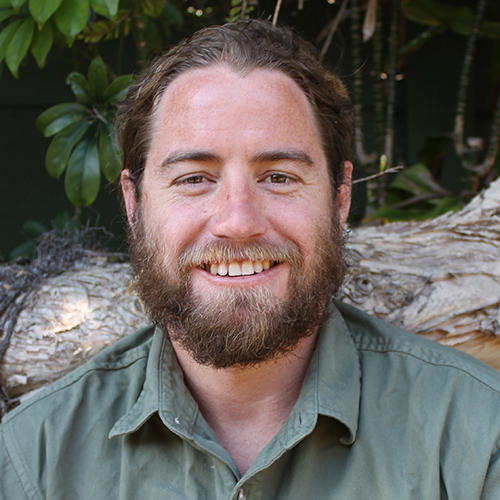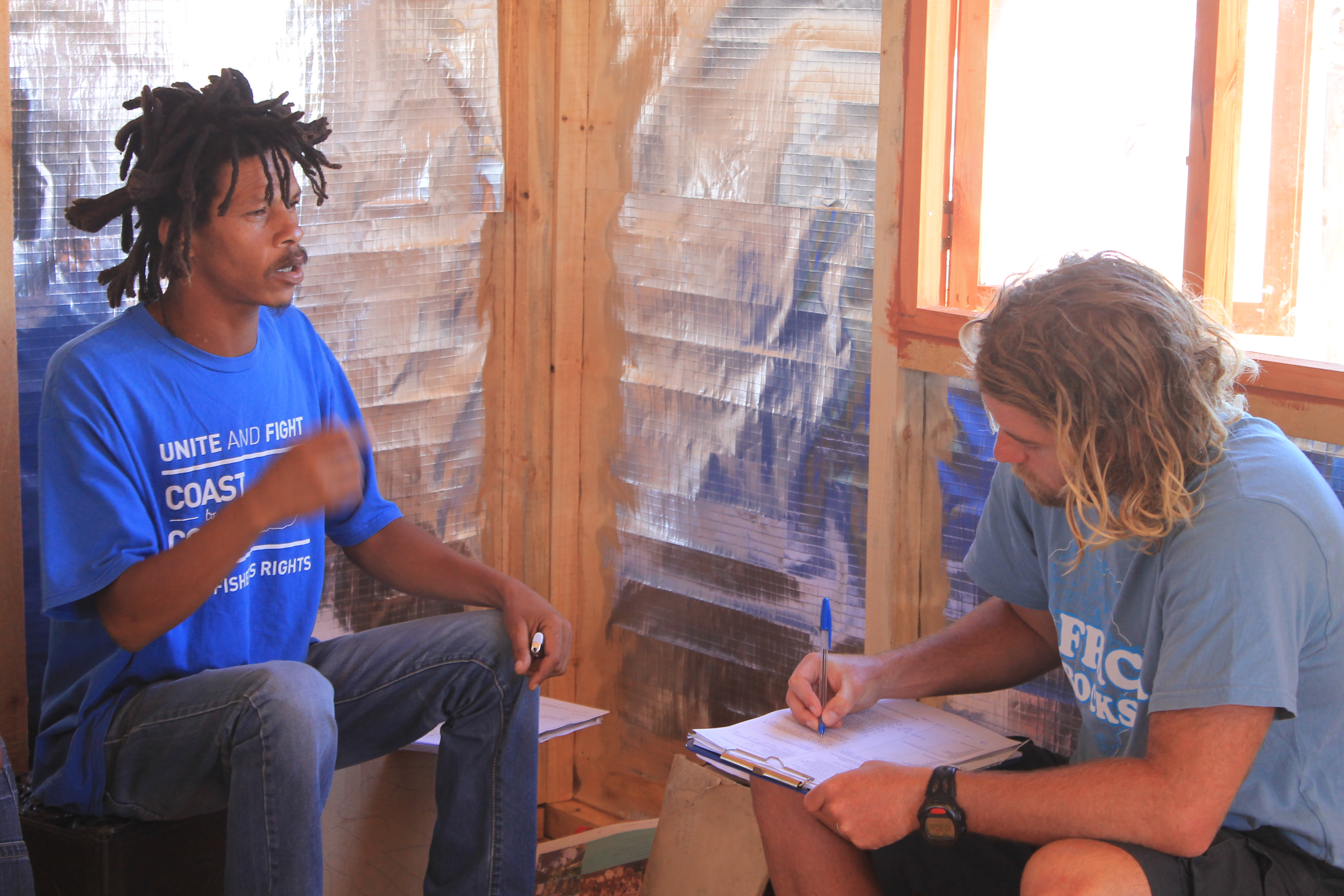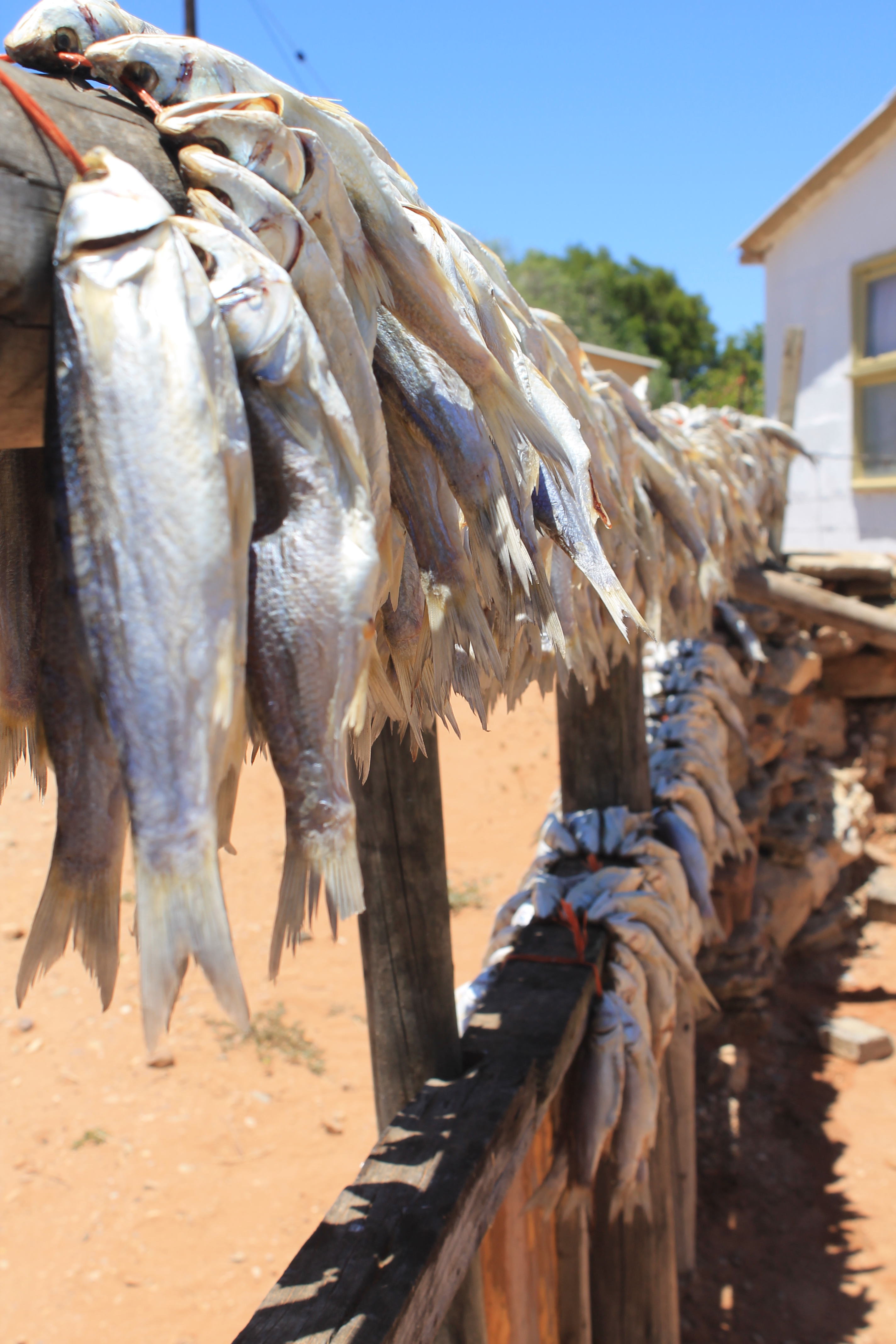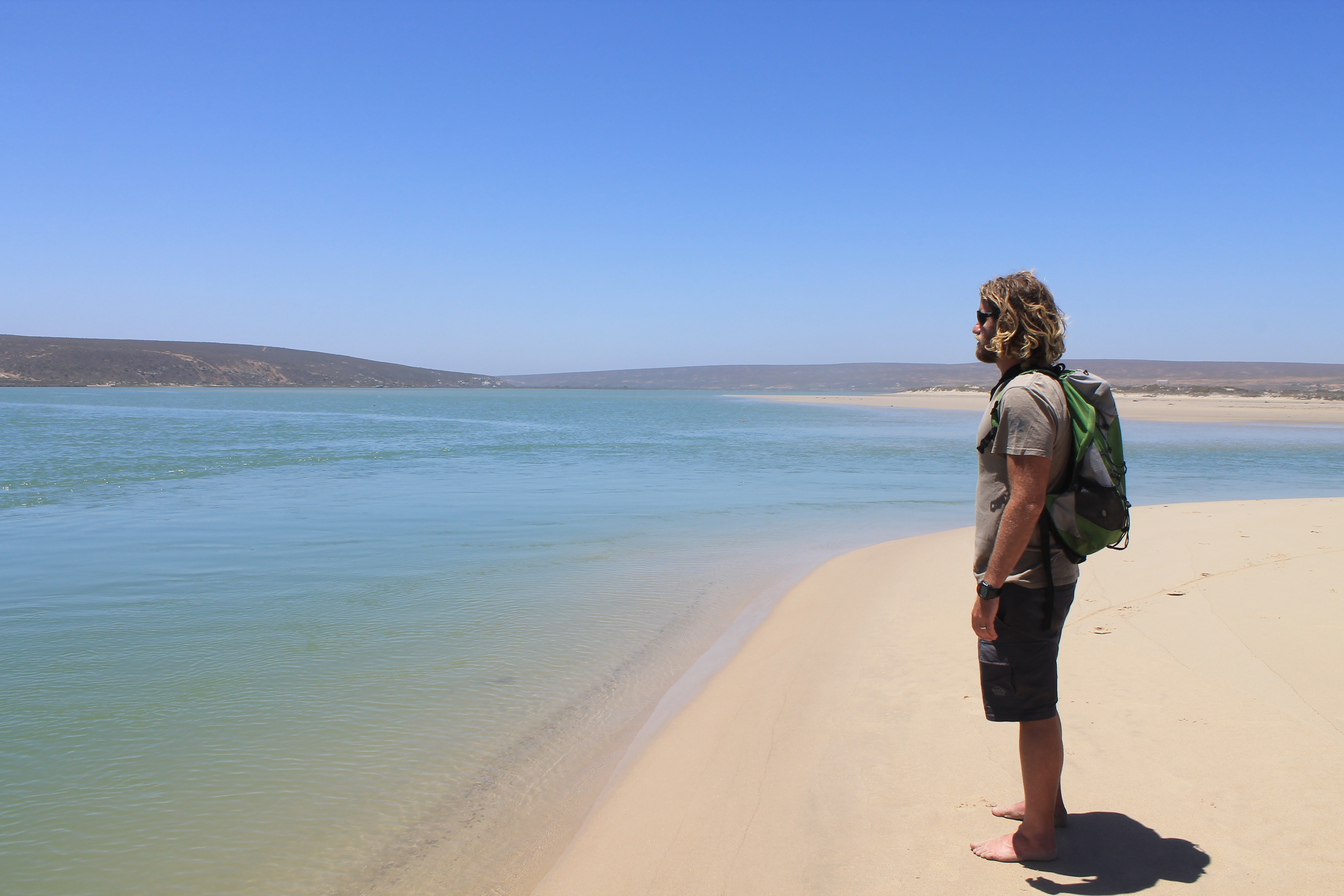
26 Apr Wayne Stanley Rice – Olifants Estuary, South Africa
“In the Spotlight” is a series of interviews that takes a closer look at the work of CCRN students and their research. Read more to learn about our students’ research and the communities they work with.
“I grew up in Durban, on the east coast of South Africa, where the coast represents a key component of our lifestyles,” says CCRN graduate student Wayne Stanley Rice. “Growing up as a surfer, diver, and lifeguard, the coast and sea have always held a special place for me, and while I have never been an avid fisher I have always respected marine life. After teaching environmental sciences at high school level for a few years, I decided to return to university to study toward a masters and PhD degree so that I could research, teach and contribute more to managing the on-the-ground social-ecological wicked problems we are facing.” Wayne completed his master’s degree under the supervision of Dr. Serge Raemaekers, and CCRN member Merle Sowman at the University of Cape Town, South Africa. His thesis examined the relative contributions of multiple fishing sectors on the status of four bycatch species. When compared to the Olifants estuary gillnet fishery, the catch and bycatch of these species were shown to be orders of magnitude greater in other fishing sectors. An indication that, closing the Olifants estuary gillnet fishery, would not necessarily address concerns about the population of these bycatch species.
Continue reading to learn more about Wayne’s thesis “Contextualising the bycatch ‘problem’ in the Olifants Estuary Small-Scale Gillnet Fishery using an Ecosystem Approach to Fisheries,” and the insights Wayne gained while completing his master’s degree. The interview is also available in audio format, click play on the recording below to listen to Wayne’s Interview.
Click play to listen to Wayne’s Student Research in Community Conservation
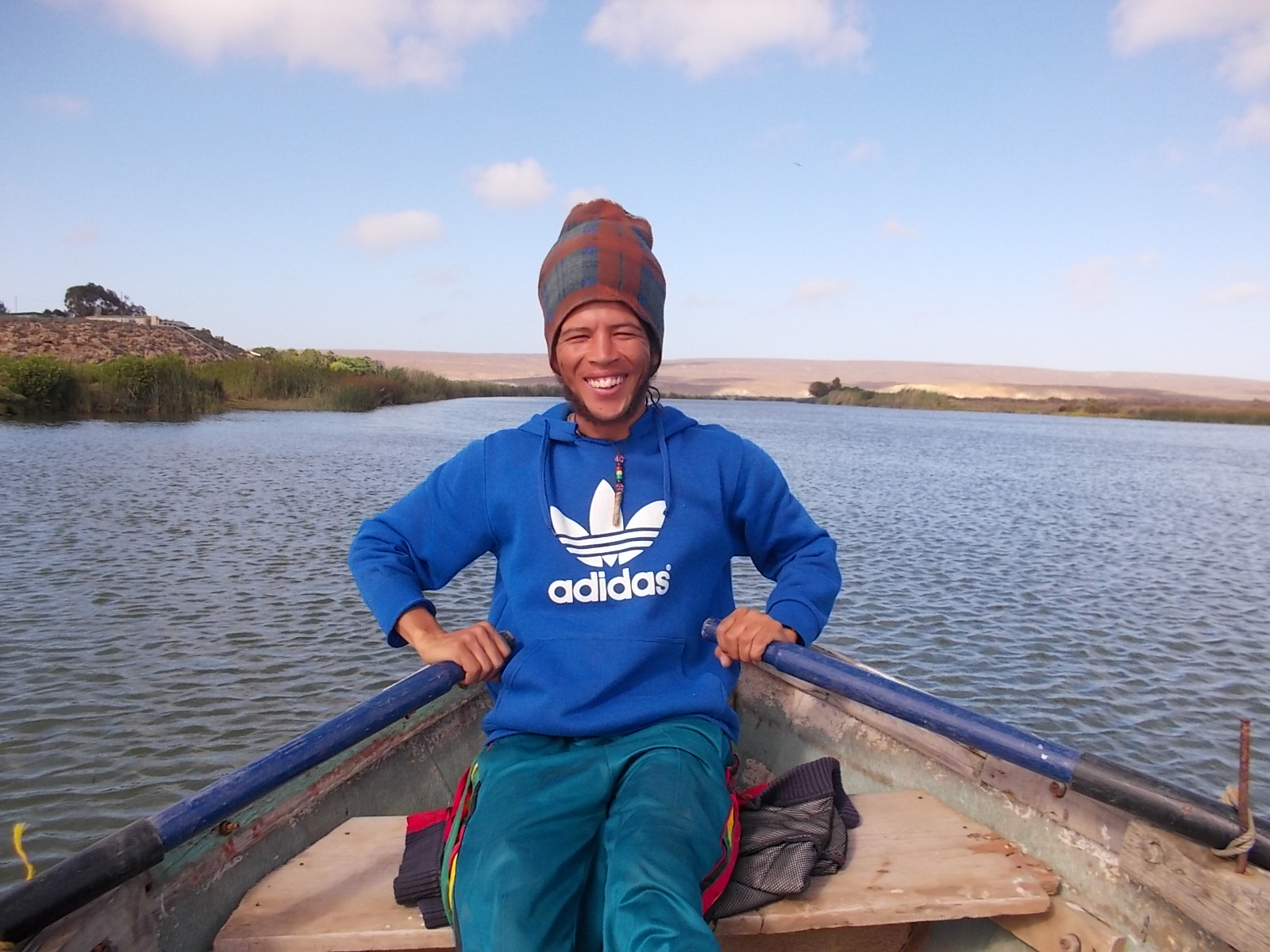
The younger generation still rely heavily of the fishery for their livelihoods. Photograph: Wayne Stanley Rice
What was the topic you addressed in your thesis?
Conventional fisheries management approaches often prove ineffective in tackling issues like bycatch, requiring a more holistic approach, particularly in small-scale fisheries. Concerns about line-fish bycatch in the Olifants estuary gillnet fishery (OEGF), on the South African west coast, have prompted numerous closure attempts by government. Yet several other fisheries either target or include bycatch of these same line-fish species. An ecosystem approach to fisheries was utilised to examine the relative contributions of multiple fishing sectors on the status of four OEGF bycatch species: elf (Pomatomus saltatrix), silver kob (Argyrosomus inodorus), white teenbras (Lithognathus lithognathus) and white stumpnose (Rhabdosargus globiceps). Evidence from available data suggests that the catch and bycatch of these species associated with other fishing sectors, namely the commercial line, inshore trawl-fishery, and recreational line-fishery, were orders of magnitude greater than the national beach-seine and gillnet fishery landings (inclusive of OEGF) for 2012 and most specifically total OEGF bycatch estimated at 0.35 – 0.61 t per year. Consequently, closing the OEGF, a primary source of food and livelihood to these marginalised fishers, would not necessarily address concerns about the stock status of these species. While estuarine function and life-history considerations are essential, employing an ecosystem approach to fisheries to understand and address overall species exploitation levels across all fishing sectors will better resolve multiple-user conflicts and improve management practice.
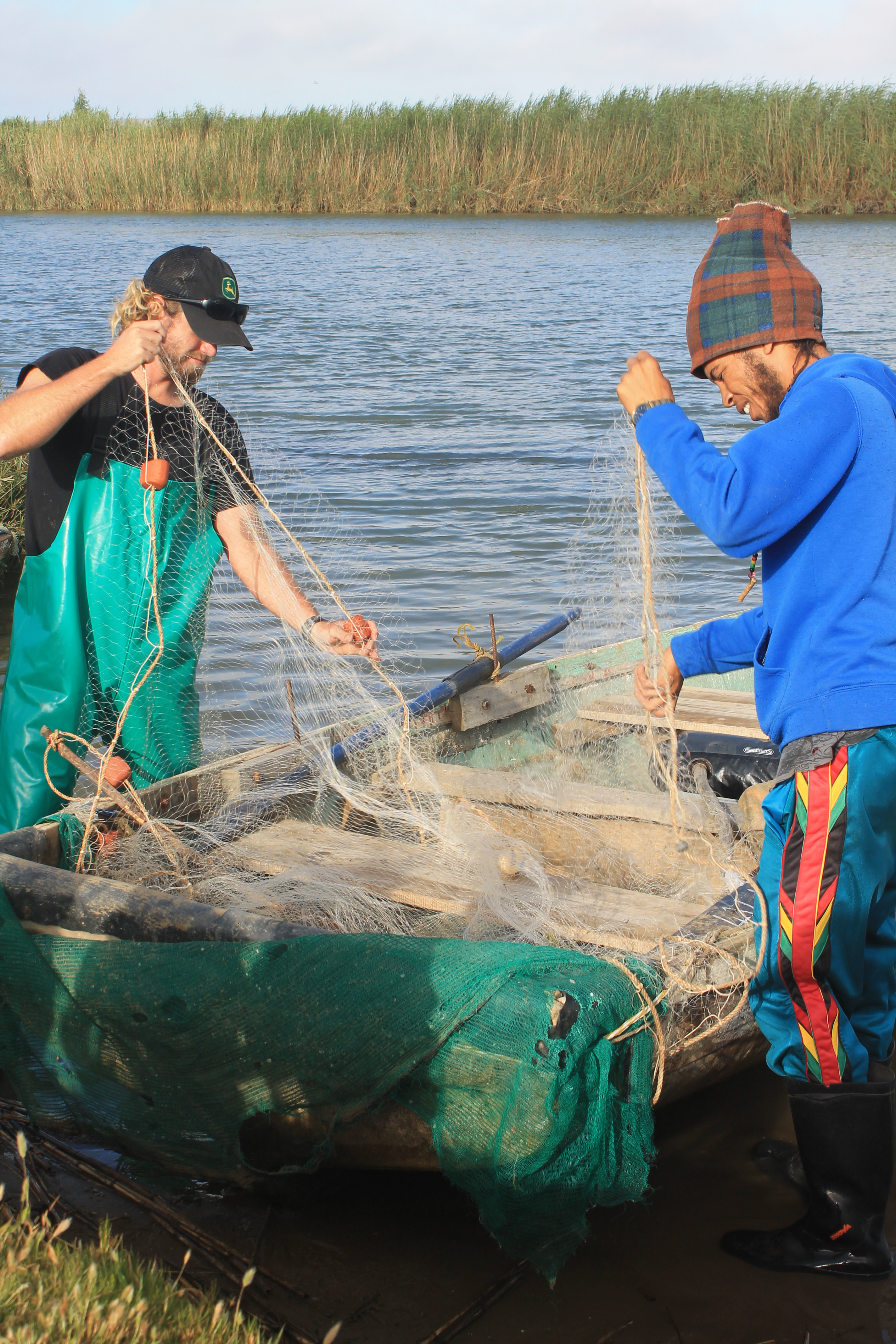
Accompanying a local fisher to gain traditional ecological knowledge and observe catch/ bycatch in the fishery.Photograph: Nolene Rice
What excites you about the work you did for your thesis?
I think that the thing that excites us all is the potential to make a difference. My fieldwork was located in a rural poor area of South Africa where small-scale fishers rely heavily upon their natural resources as a source of livelihood. With South Africa’s past social injustices, providing redress and equal opportunities to access and use of natural resources is pivotal. My hope is that my research may contribute to promoting a more holistic approach to managing cross-sectoral harvesting of natural resources in a more equitable and socially just manner which accounts for traditional peoples.
Did you run into any difficulties during your studies? If so, how did you address them?
While I was able to obtain many sources of secondary data from individuals who supported my research, obtaining specific commercial and recreational-line fishing landings data proved problematic. The lack of recreational landings data was partly overcome at a local-scale by conducting a roving creel survey, and at a national level by conducting an online recreational survey. Another challenge I faced was, as an English speaker, conducting my research within an Afrikaans community. Although I speak Afrikaans it did take some adjustment and practice. However, I became more fluent with time and could conduct interviews and interact with the local fishers, who very graciously tolerated my abilities, so communication was never a problem. In fact, the local fishers were so supportive of the research that most fieldwork was conducting without much difficulty.

Local fishers make use of row boats, often rowing up to 20km round trips. Photograph: Wayne Stanley Rice
How does your research affect the community you worked with?
I believe it will go at least a small way toward highlighting the resource use patterns and magnitudes, and provide much needed data on how to better manage fish species which are exploited by multiple fishing sectors and regions. Therefore, I hope that it will shift the focus away from a ‘Tragedy of the Commons’ mentality that still largely persists in our country. If my research has contributed toward that end and promoting the recent Small-Scale Fisheries Policy which demands it, then I will be satisfied.
What do you think are the next steps for learning more about the topics you addressed in your thesis?
At a national and local-scale, I believe greater research is required to assess the magnitudes of spatial and temporal harvesting patterns for specific species, so that improved local and species-specific management strategies may emerge which address both ecological and social concerns.
How does your research contribute to your field?
I would like to think that research like this could contribute toward promoting more holistic approaches to managing natural resources, and in this case small-scale fisheries, in a manner which is both ecologically and socially just. I strongly believe that if we cannot deal with the social dimensions within natural resource use, that we will not be able to avoid ecological degradation or reduce poverty, which are highly connected dilemmas. Therefore, I hope that this research will promote a more people-inclusive and species-specific focus to tackling both local and global natural resource challenges.



